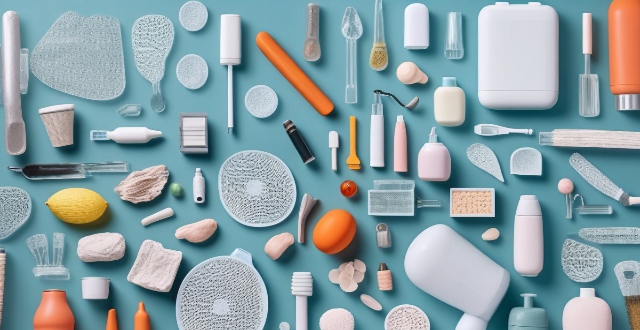
What is the importance of dental hygiene in overall health ?
The Importance of Dental Hygiene in Overall Health Dental hygiene is an essential aspect of maintaining good overall health. Poor dental hygiene can lead to a range of health problems, including gum disease, tooth decay, and bad breath. In this article, we will explore the importance of dental hygiene in overall health and provide tips for maintaining good oral health. How Dental Hygiene Affects Overall Health Gum Disease: Gum disease, also known as periodontal disease, is caused by the buildup of plaque on the teeth and gums. If left untreated, it can lead to inflammation, infection, and even tooth loss. Gum disease has been linked to several systemic health problems, including heart disease, diabetes, and respiratory disease. Tooth Decay: Tooth decay occurs when bacteria in the mouth produce acids that eat away at the enamel on the teeth. This can lead to cavities, pain, and even tooth loss if left untreated. Tooth decay can also affect overall health by causing digestive problems and nutritional deficiencies. Bad Breath: Bad breath, also known as halitosis, is often caused by poor dental hygiene. It can be embarrassing and may even affect social interactions. In some cases, chronic bad breath can be a sign of underlying health problems, such as gum disease or respiratory infections. Tips for Maintaining Good Oral Health Brush Your Teeth Twice a Day: Brushing your teeth twice a day with fluoride toothpaste helps remove plaque and bacteria from your teeth and gums. Floss Daily: Flossing daily helps remove plaque and bacteria from between your teeth where your toothbrush cannot reach. Visit Your Dentist Regularly: Regular dental checkups and cleanings can help identify and treat potential problems early on before they become more serious. Eat a Healthy Diet: Eating a healthy diet low in sugar and high in nutrients can help keep your teeth and gums healthy. Drink Water: Drinking water throughout the day helps rinse away food particles and bacteria in your mouth. Avoid Tobacco Products: Smoking or using other tobacco products can increase your risk of developing gum disease and other oral health problems. Limit Alcohol Consumption: Drinking too much alcohol can dry out your mouth and increase your risk of developing gum disease and other oral health problems.

What are the most common ingredients used in gluten-free baking ?
Gluten-free baking is a method of preparing baked goods without using wheat flour or other sources of gluten. Here are the most common ingredients used in gluten-free baking: Flours and Starches: Rice Flour, Almond Flour, Potato Starch, Tapioca Flour, Cornstarch Binding Agents: Xanthan Gum, Guar Gum, Eggs Sweeteners: Honey, Maple Syrup, Stevia Fats and Oils: Butter, Coconut Oil, Olive Oil

What is the importance of dental hygiene in pets and how can it be maintained ?
The Importance of Dental Hygiene in Pets Dental hygiene is a crucial aspect of your pet's overall health and well-being. Poor dental hygiene can lead to various health issues, including bad breath, gum disease, tooth loss, and even more severe problems like heart, liver, or kidney disease. Therefore, maintaining good dental hygiene for your pets is essential. Maintaining dental hygiene in pets involves several steps that should be incorporated into their daily routine. These steps include regular brushing, dental chews and toys, regular checkups with a veterinarian, specialized dental foods, and homemade remedies. Incorporating these steps into your pet's daily routine can help keep their teeth healthy and prevent potential health issues down the line.

How can I maintain a professional appearance while staying comfortable throughout the day ?
Maintaining a professional appearance while staying comfortable throughout the day is crucial in the workplace. Here are some tips: 1. Dress appropriately by choosing well-fitted clothes that are appropriate for your job and industry, avoiding overly casual or revealing clothing, and sticking to neutral colors like black, gray, navy, or beige. Pay attention to grooming by keeping your hair neat and tidy, making sure your facial hair is well-groomed if you choose to wear it, and applying deodorant and keeping your breath fresh with mints or gum. 2. Invest in quality footwear by wearing comfortable shoes that are supportive, such as loafers or low heels, avoiding high heels or shoes that pinch your toes, and breaking in new shoes gradually by wearing them around the house before wearing them to work. Take care of your feet by wearing socks or stockings that wick away moisture and prevent blisters, using shoe inserts or insoles for extra cushioning and support, and giving your feet a break by taking off your shoes during lunch breaks or when you're at your desk. 3. Stay hydrated and nourished by drinking plenty of water and bringing a water bottle to work to refill it throughout the day, avoiding sugary drinks and caffeine which can dehydrate you. Snack smartly by packing healthy snacks like fruits, nuts, or granola bars to avoid midday cravings for unhealthy foods, and eating small meals throughout the day instead of three large ones to maintain energy levels. 4. Take breaks and stretch by getting up from your desk every hour or so and taking a short walk or stretch, using your lunch break to go for a walk outside or do some light exercise. Practice good posture by sitting up straight with your feet flat on the floor and your shoulders relaxed, using a chair with good back support and adjusting the height if necessary, and taking breaks from staring at a computer screen by looking away for a few seconds every 20 minutes.

Are there any specific products or tools recommended for optimal oral hygiene ?
Optimal oral hygiene is crucial for overall health. Recommended products and tools include electric or manual toothbrushes, fluoride or whitening toothpaste, dental floss, interdental cleaners, antibacterial or fluoride mouthwash, tongue scrapers, and water flossers. Tips for optimal oral hygiene include regular brushing and flossing, regular dental check-ups, a healthy diet, quitting smoking, and drinking water after meals.

What are the best practices for personal hygiene ?
Personal hygiene is essential for maintaining good health and preventing the spread of illnesses. Best practices include washing hands regularly, showering daily, brushing teeth twice a day, wearing clean clothes, trimming nails, covering mouth when coughing or sneezing, avoiding touching face, keeping living space clean, getting enough sleep, and staying hydrated.

What are some common mistakes people make when grooming their pets ?
Pet grooming is essential but often mishandled by pet owners. Common mistakes include neglecting dental care, using improper brushing techniques, overlooking nail trimming, ignoring ear cleaning, incorrect bathing practices, skipping professional grooming, disregarding anal gland expression, overlooking paw care, not customizing grooming to the pet's needs, and neglecting regular check-ups. Avoiding these errors ensures pets stay healthy and well-groomed, enhancing their overall well-being.

What are the best ways to improve female fertility naturally ?
The text provides a comprehensive guide on the best ways to improve female fertility naturally. It emphasizes the importance of maintaining a healthy weight, managing stress levels, optimizing nutrition, tracking ovulation, limiting caffeine and alcohol intake, quitting smoking, and avoiding excessive exercise. The text explains why each method matters and how to achieve it. It also suggests seeking support from healthcare professionals before starting any new regimen related to fertility enhancement.